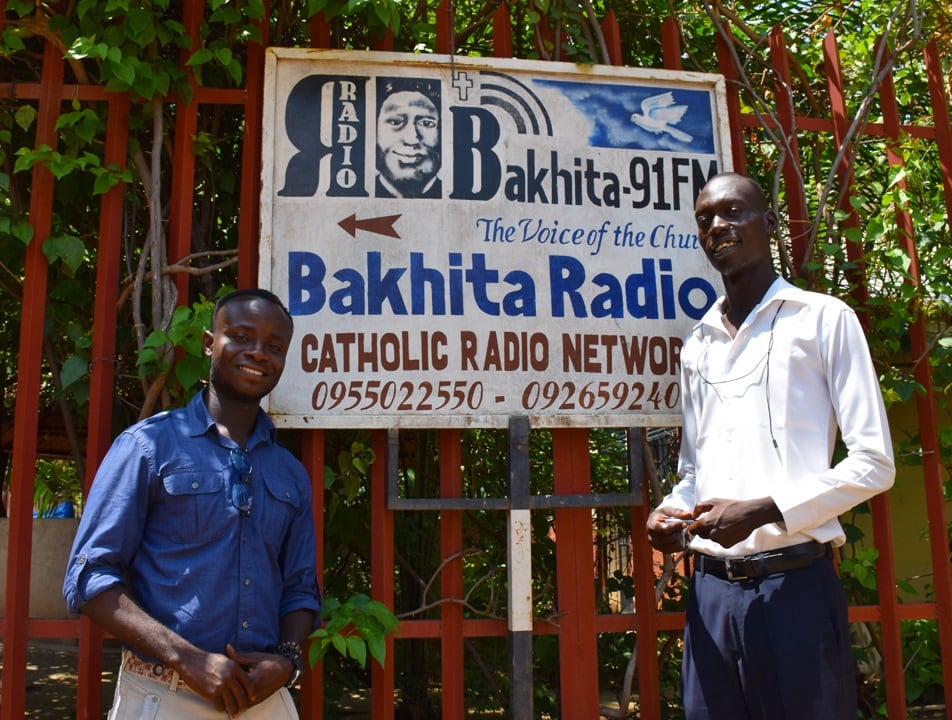
Mustapha Dumbuya, JHR trainer South Sudan(l) and Emmanual Tombe, In-country Director South Sudan (r)
With the support of Global Affairs Canada (GAC), JHR trainers continue their work in media development in South Sudan through enhancing the professional skills of experienced journalists in reporting and covering development, human rights and gender equality issues.
By Emmanuel Tombe, JHR In-country Director, South Sudan
It was 2014, I was working at a radio station in Juba, South Sudan called Radio Bakhita when I heard of the organization Journalists for Human Rights (JHR). I was one of the very first South Sudanese journalists to attend the training being offered by JHR in South Sudan.
I was intrigued as I believe media is a way to help the vulnerable. A way to use the voice of the people to push for equality, a way to ensure women are respected and given same dignity as men have; to push to see discrimination eliminated.
These basic ideologies have always been part of me, and by working with media, I know I can at least make a small difference to see that every person has their rights respected.
I was interested in the approaches that JHR invested in developing journalist, not only to become stronger reporters but to also ensure they, and those around them understood their basic human rights; which is one of the most valuable strategies in the context of South Sudan.
I have been training journalists for almost five years now, focusing on new journalists to give them basic techniques. I also always ask them questions about their passion for their work and why they became a journalist. Some say they wanted to see their community happy, others wanted to become a journalist to help the vulnerable or because they thought they could somehow assist South Sudan treat all member of society equally and respect one another.
As time went on, I mentored more and more young journalists, always intrigued by their stories. That is when I first heard of JHR and its goal of empowering journalists to cover human rights issues “objectively and effectively,” I realized that this is where I belong.
Through JHR training, I better understood how journalism can create positive change. From there I kept in contact with JHR as I worked at Radio Bakhita as a Deputy Director and eventually helped lead an agreement between JHR and Radio Bakhita to allow a JHR in-house trainer to work with my team at the radio station.
Through the help of JHR, our journalists – through training – were able to produce full packages on gender issues such as a girl’s right to education or challenges facing those with disabilities.
If we are able to strengthen more journalists across the country, then I believe that human rights abuses will not only be reported, but the perpetrators will be held to account.
As I now begin this new chapter in of my life with Journalists for Human Rights, I know this is the beginning of a challenging, yet interesting journey and one which I hope will do more for the people of South Sudan.



